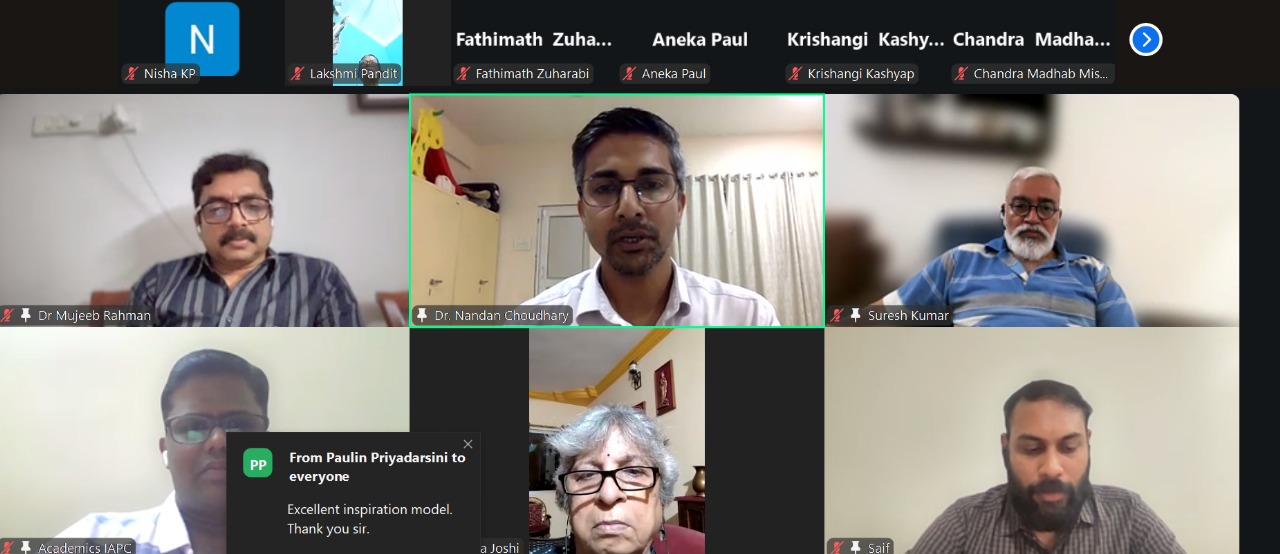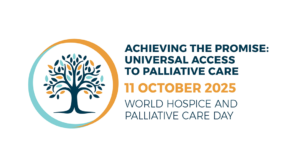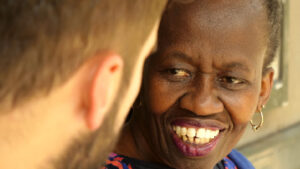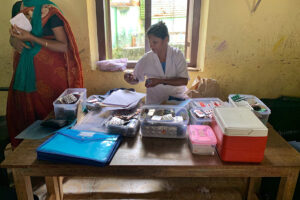IAPC Joins the Global Celebration of World Hospice and Palliative Care Day 2025
To mark the World Hospice and Palliative Care Day (WHPCD) 2025, the Indian Association of Palliative Care (IAPC) led several initiatives that reflected this year’s theme “Achieving the Promise: Universal Access to Palliative Care.” Through thought-provoking articles, engaging webinars, and creative competitions, the IAPC brought together voices from across India and the world to highlight compassion, policy, and collective responsibility in advancing access to care for all.
Articles Reflecting the WHPCD 2025 Theme and Sub-themes.
Four insightful articles were featured in the IAPC’s monthly newsletter in celebration of WHPCD 2025. Each explored different dimensions of the year’s theme and its sub-themes such as compassion, policy, and systems integration, while urging action towards universal access.
1. Stephen Connor (Executive Director, WHPCA) wrote “World Hospice & Palliative Care Day 2025 – Achieving the Promise: Universal Access to Palliative Care“. This article introduced the theme and sub-themes and called for full integration of palliative care into health systems around the world within the next five years. The article stressed that universal access is key to universal health coverage. It also called for people with lived experiences to be included in WHPCD celebrations and for communities to actively participate in them.
2. Heather Richardson’s “Realising Compassion in People and Communities: A Step Towards Universal Access to Palliative Care” focused on the first sub-theme, which was the transformative power of compassion and the role of communities in extending care beyond professional settings. She said that we need to build compassionate communities based on what has worked in other parts of the world in order to make sure that everyone has equal access to quality care.
3. “From Paper to Patients: Why India Must Put Palliative Care Policies into Practice” by Ms. Smriti Rana looked at the second sub-theme: the need to effectively implement existing palliative care policies. Ms Rana explains in this article that India’s problem isn’t that it doesn’t have policies; it’s that they aren’t always followed. It used evidence from recent policy analyses to call for stronger support for the National Programme for Palliative Care (NPPC), updating state essential medicines lists, and better training for workers so that policy goals can be turned into real care for patients.
4. M. R. Rajagopal’s “Achieving the Promise” was a visionary but realistic look at India’s path to universal access to palliative care. He encouraged the palliative care community to use a SMART (Specific, Measurable, Achievable, Relevant, and Time-bound) approach to approach problems like limited access to opioids, poor integration into medical education, and unequal end-of-life care. The article was both a wake-up call and a call to action for everyone to work together to make progress that will last.
Together these four essays presented a full picture of the WHPCD 2025 theme by combining compassion, policy, advocacy, and strategic planning. They emphasised the IAPC’s ongoing dedication to increasing awareness, encouraging conversation, and motivating people to work together to ensure that everyone has equal access to palliative care.
The WHPCD 2025 Webinar Series
IAPC also conducted a three-part webinar series based on three sub-themes. It brought together key individuals from India and abroad to build momentum towards universal access to palliative care. The webinars received positive feedback from the palliative care community. Almost 200 people signed up for each session, including doctors, nurses, social workers, policymakers, and students from all over the country.
Webinar 1: Empowering People and Compassionate Communities
The first webinar looked at how compassionate communities can fill in gaps in access to care. Experts from India and other countries gave examples of how getting people involved in their communities can help palliative care services. The talks made it clear how important it is to promote empathy, volunteerism, and shared responsibility to make sure that care goes beyond the walls of institutions and into homes and neighbourhoods.
The Speakers include:
- Cr Kerrie Noonan, Director, Death Literacy Institute
- Dr Suresh Kumar, Director IPM-WHOCC
- Mujeeb Rahman, Clinical Director, IPM
- Saif, Consultant IPM
- Nandan Choudhary, Consultant, Karkinos Healthcare
Webinar 2: Implement Palliative Care Policies to Improve Access
The second webinar emphasised the critical necessity of actualising national and state-level palliative care policies. The session looked at the challenges that make it difficult to implement existing frameworks like the National Programme for Palliative Care (NPPC) and the NDPS Act reforms into action. It also suggested ways to improve governance, build capacity, and work with communities to make palliative care available in all states.
Speakers included:
- Dr Alok Mathur, Deputy Director General, Ministry of Health, and Family Welfare
- Dr Gayatri Palat, Professor and Head, Department of Palliative Medicine, MNJ Institute of Oncology
- Dr Parth Sharma, Community Physician and Public Health Researcher
- Dr Bimla Sharma, Head, Department of Palliative Medicine, Sir Ganga Ram Hospital
Webinar 3: Integrate Palliative Care Fully into Healthcare Systems through UHC
The last webinar, which took place on World Hospice and Palliative Care Day, addressed ways to include palliative care in the larger system of Universal Health Coverage (UHC). The panellists talked about how palliative care is an important part of any health system and how it can be used at all levels of healthcare delivery, from primary care and hospital services to community outreach.
Speakers included:
- Dr Mary Ann Muckaden, Former President, IAPC
- Dr Geeta Joshi, President, IAPC
- Ms Marie Cooper, Senior Nurse Advisor, St. Christopher’s Hospice (UK)
- Dr Jayita Deodhar, Head, Department of Palliative Medicine, Tata Memorial Hospital
- Dr Nishkarsh Gupta, Professor, Department of Onco-Anaesthesia and Palliative Medicine, AIIMS
The webinar series gave India’s palliative care network a structured way to connect and share knowledge across disciplines. Each session enabled better understanding of how policy, compassion, and system integration work together to ensure universal access to palliative care. The enthusiastic participation showed that the palliative care community is gaining momentum in its efforts to “achieve the promise” of equitable and compassionate care for everyone.
Competitions for WHPCD 2025: Using creativity to celebrate compassion.
To encourage participation within the palliative care community the Indian Association of Palliative Care (IAPC) held two national competitions: an Essay Writing Competition and a Photography Competition. The goal of both was to encourage people to share their thoughts, experiences, and dreams of a world where everyone can get quality palliative care.
The response was incredible, with 60 essays and 43 photos sent in by doctors, nurses, and palliative care professionals from all over India and abroad. The submissions showed a lot of empathy, creativity, and a shared desire to make palliative care a basic right.
Essay Writing Competition
Topic: “How can we achieve universal access to palliative care in India? Challenges, innovations, and your vision”
The essay competition asked people to think of both practical and visionary ways to improve palliative care in India. The winners were chosen after a tough evaluation process:
- 1st Place: Ms. Keshav Sharma, Psycho-Oncologist at Artemis Hospitals in Gurugram, Haryana
- 2nd Place: Ms. Neetu, a nursing officer at AIIMS in New Delhi
- 3rd Place: Dr. Sandra O. from the Institute of Palliative Medicine in Kozhikode, Kerala
Photography Competition
Theme: “Faces, Places, and Moments of Compassion: Capturing Universal Access to Palliative Care”
The photography contest was all about the human stories that make up palliative care: compassion, dignity, and connection. Each entry told a different visual story about caregiving and strength.
- 1st Place: Dr. Ankit Chandra, Assistant Professor at AIIMS-CAPFIMS in New Delhi
- 2nd Place: Ms. Harshita D., a psychologist and research scholar at Kasturba Medical College in Manipal, Karnataka
- 3rd Place: Mr. Mohankumar B. Thambad, Senior Manager of Palliative Care Services at SVYM in Dharwad, Karnataka
The first, second, and third place winners will each get a cash prize of ₹10,000, ₹7,500, and ₹5,000, as well as certificates from the IAPC and the Worldwide Hospice Palliative Care Alliance (WHPCA).





